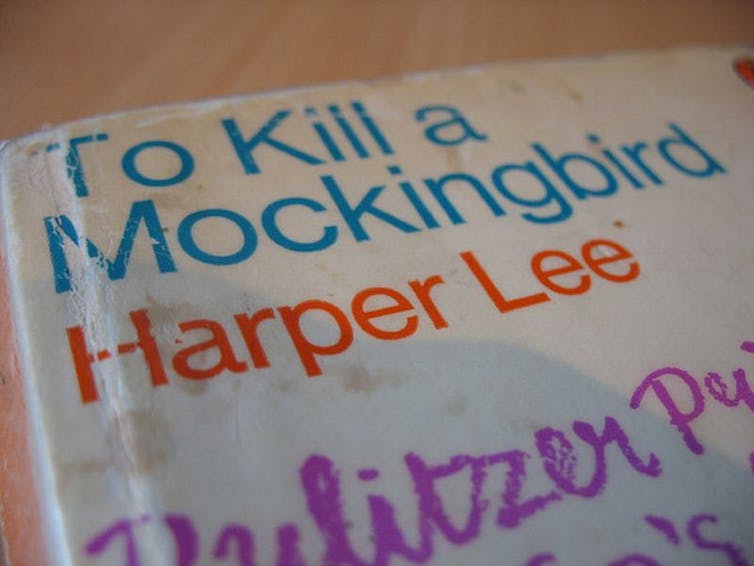
Should Australians be as familiar with David Williamson as with Shakespeare? Should we measure our Jane Austen with sufficient doses of Miles Franklin?
Britain has recently revised the GCSE (General Certificate in Secondary Education) syllabus for English literature. The category of “prose from different cultures” has been replaced by “modern works from Britain”. The change means that classic American novels and plays, such as John Steinbeck’s Of Mice and Men, Harper Lee’s To Kill a Mockingbird, and Arthur Miller’s The Crucible, will no longer be among the choices for required texts.
Students must study at least one Shakespeare play, a 19th-century novel (selected from works by Charles Dickens, Jane Austen, Charlotte Brontë and Robert Louis Stevenson), a variety of poetry since 1789 (with a focus on the Romantics), and British fiction or drama published from 1914 to the present.

One of the goals of the GCSE in literature is for students to “appreciate the depth and power of the English literary heritage”. Of course, when Chaucer, Shakespeare, Milton, Austen, Wordsworth, Dickens, the Brontës, George Eliot, and Woolf are on your team – and that’s just for starters – there’s no difficulty in filling a course with British prose and poetry.
But shouldn’t we aim to read literature across cultures?
The GCSE course requirements state that all works must have been originally published in English, which eliminates literature in translation. Nevertheless, does this mean that students do not need to view “the English literary heritage” within a global context?
The novel, which truly comes of age with the 19th-century British authors included on the syllabus, develops significantly in the United States in the 20th century. And Britain’s imperial past influenced the literatures of Australia, Canada, South Africa, New Zealand, and India, just as these literatures have, in turn, influenced British writing.
One of the exam boards, Eduqas, has replaced Maya Angelou’s autobiographical novel I Know Why the Caged Bird Sings with Meera Syal’s Anita and Me. Syal was born in Britain to Indian parents and her novel is about a British Punjabi girl who lives in the Midlands. Clearly a novel like Syal’s expands the idea of what Britishness encompasses and diversifies the whiteness of its “literary heritage”.
Syal herself was quick to point out that American literature was an important part of her teenage reading and helped to inspire her to write:
I think it’s great that British authors are influenced by different kinds of voices from the syllabus, but not at the expense of great books, wherever they’re from. I’m honoured to be on the syllabus, but, if I hadn’t read To Kill a Mockingbird, I don’t think I would have had the spur to be a writer. It changed the way I thought about life.
The concept of “great books” is fraught, because women of colour, like Syal, would, until recently, have been excluded from the literary canon. However, the idea that young people should be exposed to a wide range of outstanding, or enduring, literature, regardless of the nationality of the authors in question seems compelling. After all, isn’t literature, especially today, engaged in a global conversation?
American literature is not the only loss in the new GCSE syllabus. Doris Pilkington’s Follow the Rabbit-Proof Fence is among books from Australia, New Zealand, and Nigeria that will no longer be taught with the axing of the “Exploring Cultures” strand of the English syllabus.
If Australian literature is rarely taught in schools internationally and only in a limited number of overseas universities, is there an even greater need to ensure that Australian literature is at the heart of our own English classes?
Syal’s exhortation that “different kinds of voices” must sit alongside “great books, wherever they’re from” strikes a balance between exposing the next generation of readers to a range of contemporary literature from their own country, which may echo or expand on their own lived experiences, and the world’s shared literary history.
Australian author John Kinsella suggests that “foisting a national literature on students” is an act of “blatant […] gatekeeping: setting agendas of control and manipulation”.
In particular, Kinsella speaks about the process of defining literary “classics” in order to bolster our sense of national identity as having the potential to exclude people and surrender our individual voices to “bodies of authority”.

The changes to the English GCSEs also seem grounded in asserting a sense of British national identity, and potentially literary superiority. Yet the new syllabus does at least acknowledge the multicultural make-up of Britain and the place of immigrant authors and people of colour within its idea of nationhood.
